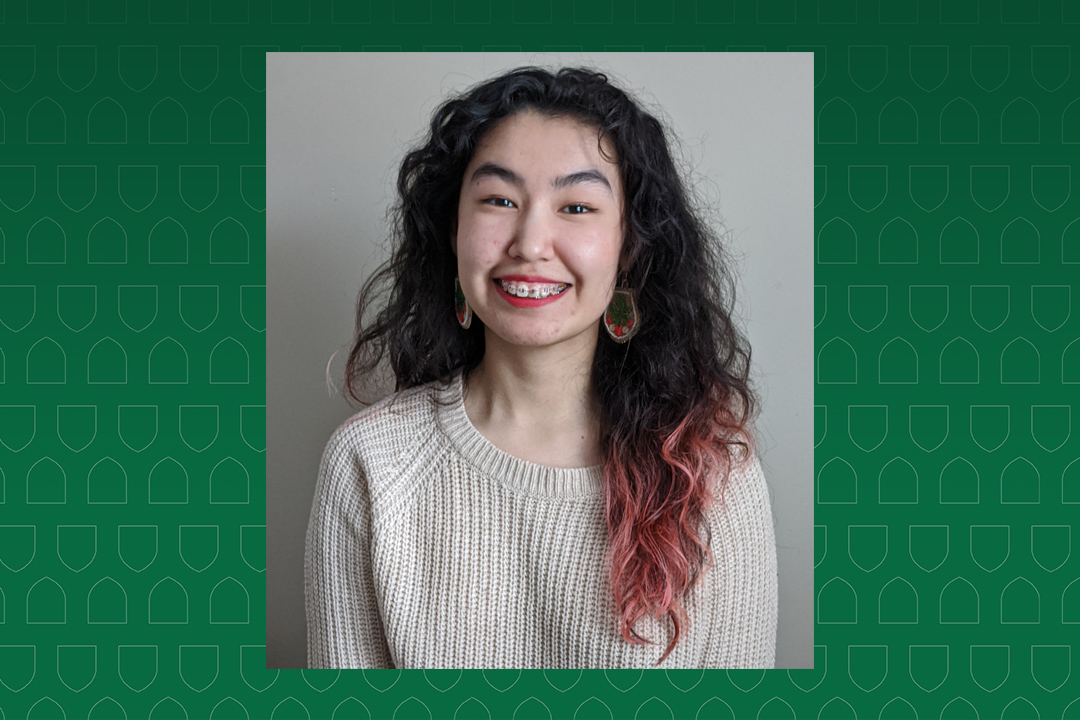
USask linguistic student hopes to create a language revitalization program for Denesųłıné, her ancestral language
Despite facing some very difficult personal issues in the 2019-2020 academic year, Meztli Henriquez has kept working at her studies, completing all of her courses.
By Kim FontaineIn winter 2020 (a challenging term for all), Henriquez completed an outstanding final paper for her Language and Culture class. Dr. Martin Kohlberger (PhD), a faculty member in the linguistics department, commented on a paper she wrote for his Indigenous Languages of Canada class, stating that it is not only worthy of publication, but is a powerful contribution to the discussion about the connection between language and well-being in the context of Canadian Indigenous communities.
Henriquez was recognized with an award for resiliency at the University of Saskatchewan (USask) Indigenous Student Achievement Awards, which was held virtually on Feb. 4, 2021, to honour USask Indigenous students for their academic excellence, leadership, research, community engagement and resiliency.
The award ceremony was part of Indigenous Achievement Week (IAW), which celebrated the successes and contributions of Métis, First Nations and Inuit students, staff and faculty within the context of this year’s theme: nīkānihk itohtētān, walking together into the future.
We asked Henriquez a few questions about her journey at USask:
Why did you choose the linguistics program?
I chose the linguistics program because I have always been very interested in languages and how languages and society are connected. I also thought the various classes in the program would help me work towards my goal in eventually creating a language revitalization program for my language, Denesųłıné.
Why is the connection between language and well-being important?
As someone who never grew up speaking Denesųłıné, I felt disconnected and lost as an Indigenous person growing up. As I got older and started to learn the language on my own, that made me feel better being able to connect with that part of me. However, I was missing people to speak the language with. I know there are many others like me who felt the same things I did. The other half of my family came to Canada from El Salvador and I know some members of my family felt lost being the only ones who spoke Spanish in an English-speaking environment. I think knowing the language is incredibly important, but so is having people to share and speak the language with. Language is how we express ourselves and helps us build relationships, not having people who can understand us is a very lonely feeling.
What has helped you to stay motivated and committed to your studies through COVID?
The classes I have been taking are ones that I enjoyed and were very interested in, so that has definitely motivated me to keep up with my studies. It has also given me something to do while staying at home, keeping busy helps my mental health greatly.
What are your goals for the future?
As I mentioned before, I would like to create a language revitalization program for Denesųłıné, particularly one in the city and one that adults can attend as well. I’ve noticed that there is a lack of resources for adult learners, as a lot of programs are aimed at youth. I believe it is important for anyone at any age to have access to learning Denesųłıné, more so in the city where there may be even fewer opportunities to immerse ourselves in the language. If I am able to increase the number of speakers, that would make me incredibly happy.
This year’s Indigenous Achievement Week theme is nīkānihk itohtētān, walking together into the future. What does this mean to you?
Walking together into the future means we don’t leave anyone behind, and we are there to help those who need assistance. Everyone at some point has been the person providing support and also the person who needed help. I don’t think I could have gotten this award if it wasn’t for my teachers and fellow classmates who worked with me through any difficulties I had.
Tell us anything about yourself that you would like us to share.
I am Denesųłıné and Salvadoran. At various points through my life, I have had people tell me that I belong to neither community, that I am more one than the other, and that used to bother me, and I doubted myself. I am now at a point where I am comfortable with myself and I happily celebrate being both. There is no choosing sides, I have love for both of these parts of me and I hope that can be reflected in my future work.

